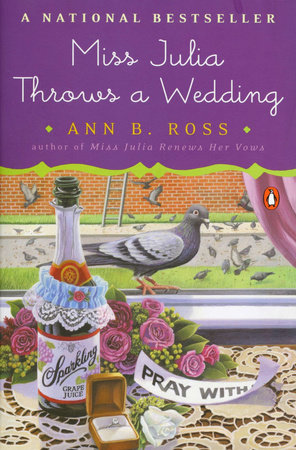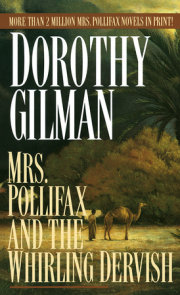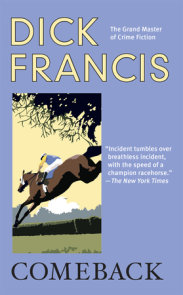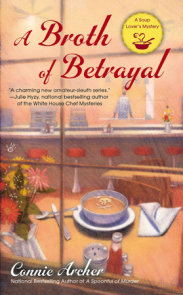READERS GUIDE
Questions and Topics for Discussion
INTRODUCTION
Whether this is your first introduction to Julia Springer or she’s already a familiar acquaintance, you’re in for a treat. Miss Julia, as she is known to friends and family, is a well-to-do Southern woman of a certain age whose life took an unexpected turn when she found her husband, Wesley Lloyd Springer, slumped over the steering wheel of his new Buick Park Avenue, dead as a doornail. Although during her long marriage, Julia had taken pride in supporting her husband, keeping a perfect house, and attending church whenever the doors opened, she quickly learns that her comfortable, though unexciting, life had been built upon an illusion. Wesley Lloyd had not been just a good provider, he had also been a sharp businessman who, to Julia’s amazement, owned half of the county. Furthermore, he had not been the unassailable church elder who demanded of himself and others a rigid adherence to the rules; he had led a secret life that is revealed when Hazel Marie Puckett and a nine-year-old boy who is the spitting image of Wesley Lloyd show up on Julia’s front porch.
Stunned though she is, and humiliated that many—including her pastor—had known or suspected what had been going on, Julia determines to hold her head up high, face down the gossips, and publicly show what real Christian charity is, even if it kills her. She takes Hazel Marie and Little Lloyd into her home for all the wrong reasons, but gradually comes to value them for who they are—themselves.
When we meet Miss Julia in Ann B. Ross’s third novel, she is despairing over the fact that Hazel Marie is preparing to move in with J. D. Pickens, P.I., without the benefit of marriage. To make matters worse, her tenant, Deputy Coleman Bates, and her lawyer, Binkie Enloe, have been carrying on for some time now with no legalization of their relationship in sight.
Julia is, therefore overjoyed when Binkie and Coleman announce that they’re going to run down to the courthouse next weekend and finally tie the knot that, to Julia’s way of thinking, has been left dangling for too long. But she can’t permit such a hurried and unblessed event to take place without more fanfare. They must have a real wedding in her home so they will have memories to look back on and pictures for their photograph album.
Julia’s determination, energy, and out-and-out bossiness are brought into clear relief as she plans Binkie’s wedding. From a reluctant (and pregnant) bride and a no-show pastor, to a crowd-drawing miracle that appears at the Presbyterian Church across the street from her house, Julia bounces from catastrophe to catastrophe, fixing matters on the fly and learning important life lessons each step of the way. Miss Julia grows a little smarter every time she comes into contact with people and situations that don’t fit into her view of How Things Should Be Done. Whether she’s trying on the form-fitting dress Binkie has chosen for her to wear to the wedding or convincing herself that her non-English-speaking gardener, Ramon (whom she calls Raymond), understands everything she says to him, Julia is perched precariously between the world of the enlightened and the sheltered. It is to her great credit (as well as to Ross’s) that Julia manages to accept, if not condone, the actions of those who think differently from her. She also discovers the joys of generosity and tolerance, allowing Little Lloyd to take over the management of the trailer park she owns; accepting, even embracing, the African American minister who fills in at the last minute; and inviting a crowd of strangers into her home to take part in the wedding feast.
Miss Julia may have come a long way since her husband’s death, but she still has a lot to learn. She remains vulnerable to the cloying righteousness of Pastor Leadbetter and his irritating wife; she is willfully ignorant of the plight of many of those who are less fortunate than she; and she’s still trying to come to terms with her amorous feelings for Sam Murdoch, the only person in their small town who seems to know how to handle her. Even though she’s no spring chicken, Julia Springer continues to grow emotionally and spiritually with each novel. That’s no small feat for an old-fashioned widow living in small town America, especially one as proud as Miss Julia. Where her next adventure will take her, we can only guess, but there’s no doubt she’ll emerge smarter, sassier, and more likable than ever.
ABOUT ANN B. ROSS
Ann B. Ross, who has taught literature at the University of North Carolina, is the author of four novels that include Miss Julia Speaks Her Mind, one of the most popular Reader’s Digest Condensed Books of 1999 and one of Book Sense’s Top Ten Recommended Books.
A CONVERSATION WITH ANN B. ROSS
Your novels portray the petty grudges and gossip that occur in a small Southern town. Are you at all afraid of offending readers with your caricatures?
Since my stories are entirely fictional, I would be dismayed if readers thought my characters depicted actual people. My characters are composites of traits, habits, and mannerisms that I have observed in other people, as well as in myself. Besides, it’s human nature to occasionally indulge in a little gossip since we’re all interested in what goes on around us. And when the mighty fall, as Wesley Lloyd Springer did, it’s big news anywhere.
Do you identify with Miss Julia? If so, in what ways?
I identify with Miss Julia to the extent that we’ve both been raised as Southern gentlewomen—to be gracious, agreeable, and socially correct in all that we do, regardless of how we actually feel. Because of her husband’s betrayal and the town’s delight in it, Julia awakens to the fact that her life had been built upon an illusion. I am still half asleep.
Julia and I share some of the same opinions, but not all of them. She does not always speak for me, and I categorically deny responsibility for everything she says or does.
How has your experience teaching literature helped your own writing?
My experience teaching literature has shown me what great literature is, but is has also shown me that there is a legitimate place for popular literature that entertains and lightens the heart. I am not talented enough to write great literature, but I can tell a good story, and that’s what I try to do.
What advice would you give people who want to get a novel published? Is formal schooling in creative writing necessary?
The advice that I would give to anyone who wants to publish a novel is this: Write a novel. No amount of talking or dreaming about doing it will get it done. You must put words on paper, and those words must show that you know how to plot a story line, draw realistic and consistent characters, and, most of all, tell a good story.
Formal schooling in creative writing is not necessary, although it could be helpful in creating confidence, as well as in teaching the various conventions, techniques, and devices. None of my degrees is in creative writing, but I did take two elective classes in it. It was, however, the public library that was the most help to me. There was a time when I read every how-to-write book on the shelves.
What kinds of feedback do you get from readers? Do you find that they empathize with Miss Julia’s situation?
I am amazed and humbled by the response from readers. And, yes, they are overwhelmingly empathetic with Julia Springer because, I think, she has found the courage to say what they, and I, would so like to say ourselves.
In a single novel you tackle religious fanaticism and intolerance, racism, single parenting, unmarried cohabitation, and criminal rehabilitation. How do you come up with your subject matter?
I have no idea where my ideas come from. I sit down at the computer and they come flowing out. Perhaps it’s because, like many women of my region and my generation, I have bitten my tongue for so long to keep from speaking up, disagreeing, or arguing my opinion that I have a mental and emotional backlog of issues that I can now speak out on. What is stunning to me is finding that there are so many readers who apparently need a Miss Julia to speak their minds, too.
What do you have in store for Miss Julia? Which if any, of your other characters would you consider making the centerpiece for a new novel?
I try not to think too far ahead since it works better for me to concentrate fully on whatever book I’m currently writing. I have to rely on Julia herself to let me know what she’ll be up to next. As for featuring other characters, the next novel will revolve around a problem that Lillian is having, although Julia remains the narrator. There is also another novel in the works that has a different narrator, and it was great fun to view Julia Springer from the outside for a change.
What books or writers have influenced you the most over the years?
Oh, this is a hard one to answer for I wouldn’t want to credit any other writer for my meager efforts. I can say, however, that Geoffrey Chaucer has been encouraging to me because he elevated comedy to a legitimate level, in spite of Aristotle’s determinations that tragedy is the highest genre. But Chaucer fearlessly depicted human nature as it is, and much of that is just plain humorous.
I also admire The Adventures of Huckleberry Finn, To Kill a Mockingbird, and The Catcher in the Rye because they are accessible to readers of all ages—and at each age a reader can find a deeper layer of meaning. Best of all, each of these books tells a good story, which is what I try to do.
DISCUSSION QUESTIONS






















